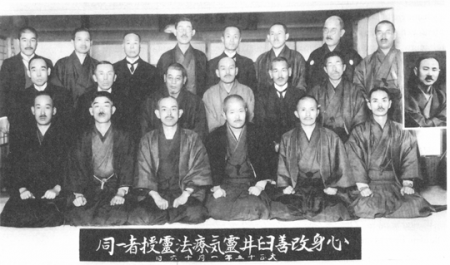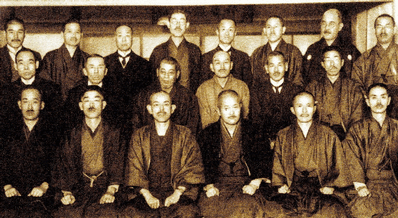Founding Of The Usui Reiki Ryoho Gakkai And Issues Within The Reiki Community
This chapter also covers the founding of the Usui Reiki Ryoho Gakkai and issues within the Reiki community, who founded the said organization and the current issues facing the Reiki community. Mikao Usui is also recognized for the founding of the Usui Reiki Ryoho Gakkai (meaning, the Usui Reiki Healing Method Learning Society), an organization committed to preserving the Reiki teachings.
Author:James PierceReviewer:Karan EmeryNov 19, 20224 Shares537 Views

This chapter also covers the founding of the Usui Reiki Ryoho Gakkai and issues within the Reiki community, who founded the said organization and the current issues facing the Reiki community.
Founding Of The Usui Reiki Ryoho Gakkai
Mikao Usui is also recognized for the founding of the Usui Reiki Ryoho Gakkai (meaning, the Usui Reiki Healing Method Learning Society), an organization committed to preserving the Reiki teachings. However, his disciples probably founded it after his death, calling it his honor. Since 1926, this group has been practicing and teaching Reiki without interruption, with the first several leaders becoming Shinpi-den students trained by Dr. Usui. They are not given the title of Grand Master but are referred to as the society's presidents and are listed as follows:
- Mikao Usui
- Juzaburo Ushida
- Kan’ichi Taketomi
- Yoshiharu Watanabe
- Hoichi Wanami
- Mrs. Kimiko Koyama
- Masayoshi Kondo (from 1999)
The Gakkai adheres strictly to Dr. Usui's teachings and owns two of his manuals (the Usui Reiki Hikkei). One of them explains his energy healing technique, Usui Reiki Ryoho, while the other discusses the many therapeutic treatments, including precise hand positions for various ailments and physical difficulties, as discussed previously.
The Gakkai holds regular meetings in Tokyo and throughout Japan for its members, during which students sing Waka poetry, chant the Reiki Principles, and practice Hatsurei-ho (a blended meditation and cleansing practice); each time they attend, they obtain a Rei-ju empowerment from one of the six Shinpi-den members for cleansing, purification, and strengthening their ability to access Reiki.
Current Issues Within The Reiki Community
For many years, doubts have been raised regarding why Mrs. Takata's story about the rediscovery of Reiki got Christianized, but this could very well have been because she was instructing individuals in the United States during and after World War II in a Japanese technique centered on Buddhist beliefs. Perhaps if she hadn't been informed that Dr. Usui was a Christian priest, things would have grown unpleasant for her.
We now understand that Dr. Usui would have been extremely unlikely to train as a Christian priest, as Christianity was prohibited in Japan until 1873, years after Dr. Usui began his Buddhist training. There is no record of Dr. Usui attending or teaching at any of the Japanese or American colleges or universities mentioned in Mrs. Takata's story.
When in the late 1990s, information came out of Japan about a range of techniques that did not seem to have been taught in the West through the Takata lineage, there was confusion, even anger, in the Reiki community. Some people wanted to ignore the new information and hold to what they already believed, while others desired to discard what they had acquired in the West in favor of Japanese approaches. Others were enraged at being denied the opportunity to learn these invaluable techniques and crucial to Western lineage.
Reiki teaching in the West is likely to have originated in a similar spirit to Japan. Mrs. Takata may have taught many of what we now believe were Dr. Usui's original methods, even if she did not utilize their Japanese names. Certain techniques were only given to Masters. Perhaps because the Masters she trained were not permitted to take notes, they simply forgot, or they were unaware of the significance of certain techniques because they didn't originate from Buddhist origins, where the spiritual and energetic importance of each method would have been more apparent.

James Pierce
Author

Karan Emery
Reviewer
Latest Articles
Popular Articles
